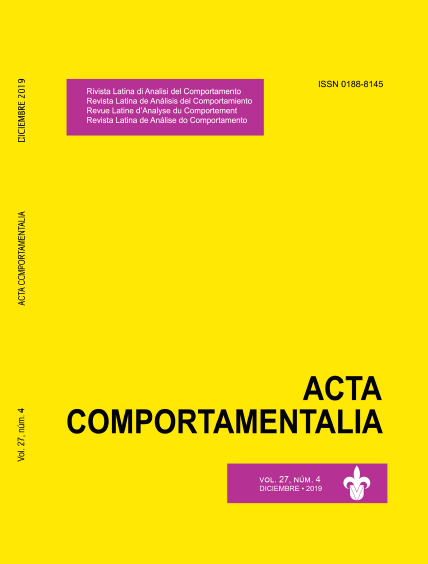Revisão de estudos do Implicit Relational Assessment Procedure sobre vieses raciais
DOI:
https://doi.org/10.32870/ac.v27i4.72025Keywords:
Implicit Relational Assessment Procedure, IRAP, racial bias, racial prejudice.Abstract
Investigations of biases, stereotypes, and prejudices have been a frequent theme in psychology studies. A frequent concern in the field has been the level of accuracy present in the participant’s reports on their prejudices. Taking into account the difficulties evidenced in self-report measures, which may be subject to social desirability biases, researchers have been developing alternative methodologies for identifying these biases, through the so-called implicit measures. In behavior analysis, some implicit measures were developed, such as the Implicit Relational Assessment Procedure (IRAP). This paper aimed to review studies that used the IRAP to investigate racial biases, stereotypes, and prejudices. Two databases (PubMed and Periódicos CAPES), in addition to 18 journals (three nationals and 15 internationals) were consulted. The keywords were “Implicit Relational Assessment Procedure” and “IRAP” and their respective terms in Portuguese. We found seven articles. From these, six used adults as participants. One study used children as participants. All studies investigated racial biases among Black and White individuals, except for one study that investigated biases of various ethnic groups (Irish, Scottish, American, and African). Regarding the results obtained in the IRAP, the reviewed studies demonstrated the presence of pro-White and/or anti-Black racial biases for White participants. On the other hand, on the explicit measures, participants generally showed positive biases for both groups. In sum, the IRAP can be considered an instrument that, despite being in development, has promising results that may be useful and even more reliable than some explicit measures, especially in socially sensitive research contexts such as investigations of stereotypes and prejudices.
Downloads
Downloads
Published
How to Cite
Issue
Section
License

<a rel="license" href="http://creativecommons.org/licenses/by-nc-sa/4.0/"><img alt="Licencia de Creative Commons" style="border-width:0" src="https://i.creativecommons.org/l/by-nc-sa/4.0/88x31.png" /></a><br />Este obra está bajo una <a rel="license" href="http://creativecommons.org/licenses/by-nc-sa/4.0/">licencia de Creative Commons Reconocimiento-NoComercial-CompartirIgual 4.0 Internacional</a>.






